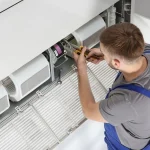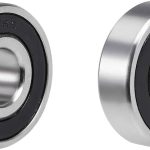Electric vehicles aren’t just the future, they’re the present. But while motors, batteries, and software often steal the spotlight, there’s one component that quietly powers the entire EV ecosystem: connectors. Without robust, safe, and efficient EV connectors, the entire electric mobility chain falls apart.
That’s why OEMs, charging infrastructure providers, and system integrators are giving more attention to connector design, safety, and standardization. In India, the demand for EV-ready components is rising—and so is the need for manufacturers who can meet global benchmarks with local expertise.
The Unsung Role of EV Connectors
EV connectors are the bridge between energy and mobility. From public charging stations to residential setups, these devices handle high-voltage transfers and must perform reliably under variable conditions. A single failure can mean more than an inconvenience—it can damage vehicles or pose safety risks.
India’s growing EV market has brought in global formats, regional regulations, and new user behavior patterns. This means EV connectors must be built to adapt—supporting fast charging, high cycles of use, and environmental exposure. That’s where experienced EV connector manufacturers are stepping in with real-world solutions tailored to Indian conditions.
Why Type 2 Is Becoming the Standard
Among the formats available today, EV Connector Type 2 has emerged as the leading choice in India and Europe. Its design supports both single-phase and three-phase charging, making it compatible with a wide range of infrastructure.
Type 2 connectors are favored for their locking mechanism, safety shutters, and capacity to handle higher power loads without compromising user safety. As India moves toward universal standards, this format is quickly becoming the default for home chargers, public stations, and fleet installations alike.
High-Performance Starts at the Inlet
While the connector gets plugged in, the EV charging inlet is the part mounted onto the vehicle that receives the power. The inlet must be engineered to match the vehicle’s internal systems, resist moisture and heat, and ensure solid contact every time it’s used.
For OEMs, inlet reliability is crucial. Poor design can lead to overheating, contact erosion, or mechanical failure over time. That’s why inlets are increasingly being custom-designed for different vehicle types—two-wheelers, three-wheelers, cars, and commercial fleets—with compatibility and safety as top priorities.
The Manufacturing Backbone Behind the Tech
No matter how advanced the design, execution depends on quality manufacturing. Reliable electronic components manufacturers in India are stepping up with the production capacity, material innovation, and testing protocols needed for EV infrastructure.
What sets these manufacturers apart is their focus on things like contact resistance, heat dissipation, flame-retardant materials, and long-cycle durability. Their components aren’t just made to spec—they’re made to last, perform, and scale with growing demand.
Design Isn’t Just About Function—It’s About Safety
EV connectors may look simple, but their internal structure is engineered for critical safety. Insulation strength, grounding mechanisms, and arc prevention are built into every part. Connectors also require robust housing that can survive outdoor conditions, rough handling, and frequent use.
That’s why trusted manufacturers put their designs through thermal tests, salt spray resistance checks, and mechanical endurance evaluations. In an environment where any failure has high stakes, shortcuts simply don’t cut it.
Speed, Availability, and Local Support
India’s EV space is evolving rapidly, and speed to market is crucial. Companies launching electric vehicles or rolling out charging stations can’t afford long waits for imported components. This is where EV connector manufacturers based in India play a pivotal role—offering faster lead times, on-demand inventory, and localized technical support that aligns with Indian road conditions and regulatory standards.
Partnering with domestic EV connector manufacturers also minimizes downtime during installation, maintenance, or system upgrades. Their proximity ensures quicker service and customization, helping businesses scale charging infrastructure efficiently and meet growing demand without delay.
Building the Ecosystem Starts with Trust
As the country works toward its EV adoption goals, everyone—from charging station operators to EV startups—is looking for suppliers who can keep up. Quality, availability, and support are non-negotiables. That’s why partnerships with established players in the connector space are becoming foundational to long-term success.
Choosing the right connector isn’t just about fitting the port. It’s about durability, safety, and trust—especially when scaling operations across cities, highways, and remote zones.
Finding
As India electrifies its roads, the smallest components are playing the biggest roles. From EV connectors and Type 2 ports to rugged charging inlets and precision electronic components, these systems are quietly powering a massive transformation. For EV manufacturers and infrastructure builders looking for reliable, high-performance connectivity solutions backed by proven engineering, Elcom delivers next-generation components ready to meet India’s electric future head-on.

 How Commercial Cleaning Rates Influence Office Culture and Employee Morale
How Commercial Cleaning Rates Influence Office Culture and Employee Morale  A Few Popular Outdoor Kitchen Ideas for UK Gardens
A Few Popular Outdoor Kitchen Ideas for UK Gardens  A Smart Planning Checklist for Investment Management in Philadelphia
A Smart Planning Checklist for Investment Management in Philadelphia  7 HVAC Concerns Residents in High Springs Should Address Early
7 HVAC Concerns Residents in High Springs Should Address Early  Ensuring Worker Safety with High Quality Oil and Gas Gear
Ensuring Worker Safety with High Quality Oil and Gas Gear  Experience Elegance: Top Boutique and Luxury Hotels in Phuket
Experience Elegance: Top Boutique and Luxury Hotels in Phuket  How do casual encounters promote independence?
How do casual encounters promote independence?  Brilliant Product Selection and Maintenance with the SRG Bearing Set
Brilliant Product Selection and Maintenance with the SRG Bearing Set  How Hemp Balms Are Redefining Migraine Relief for a Stress-Driven Lifestyle
How Hemp Balms Are Redefining Migraine Relief for a Stress-Driven Lifestyle 



